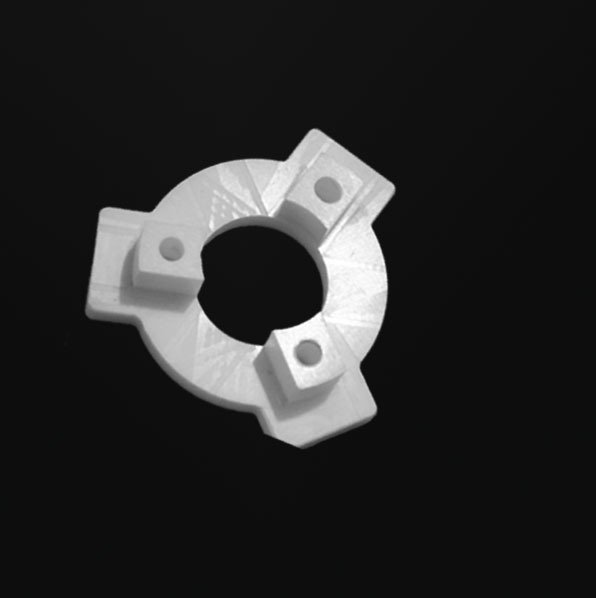
NEWS
What is the difference between fine ceramics and industrial manufacturing ceramics?
Release time:
2022-04-25
The raw material of fine ceramics is inorganic solid powder, and its purity, particle size, particle distribution and other parameters have been well controlled. The raw materials formulated according to the function are further mixed with the binder. It is made into a prescribed shape through precision molding and initial processing, and fired in a controlled firing furnace. During the firing process, moisture and binders contained in raw materials are removed. By further heating, the powder particles are fused at a temperature below the melting point, the voids are reduced, and the sintering is completed to form a dense and very hard product. Precision ceramics are characterized by heat resistance, wear resistance, corrosion resistance, good electrical insulation, and good optical or electrical properties.
Precision ceramic materials have the following applications in industry :
(1) Applied to improve the mechanical strength of ceramic materials
(2) Applied to improve the superplasticity of ceramic materials
(3) Applied to the preparation of electronics
(4) Applied to the preparation of ceramic tool knives

Industrial ceramics refer to ceramics used in various industries. Let me briefly talk about it from several aspects:
(1) Chemical ceramics: acid-resistant containers, pipes, towers, pumps, valves, etc. used in various chemical industries.
(2) Chemical porcelain: Porcelain crucibles and combustion boats used in chemical laboratories.
(3) Electric porcelain: used for insulators on high and low voltage transmission lines in the power industry. Bushings for motors, insulators for pillars, insulators for low-voltage electrical appliances and lighting, insulators for telecommunications, insulators for radio, etc.
(4) Refractories: Refractories used in various high-temperature industrial kilns.
(5) Special ceramics: Special ceramic products that are different from various modern industries and cutting-edge science and technology, including high-alumina porcelain, magnesium stone porcelain, titanium magnesium stone porcelain, lithium porcelain, magnetic porcelain, metal ceramics, etc. .
Industrial ceramics and precision ceramics have their own advantages and are widely used, such as using high hardness and high wear resistance ceramics to produce mechanical parts, seals, cutting tools and other materials. The application of industrial ceramics and precision ceramics is mainly used to make circuit substrates, coil skeletons, sockets for electronic tubes, high-voltage insulating porcelain, and rocket cones, etc., and can also be made into high-porosity alloys for casting alloys. The precision casting core can also be used as a high-temperature material with good shock resistance. Industrial ceramics and precision ceramics add non-metallic non-oxide elements such as silicon nitride, and their wear resistance is even better than that of metal-added ceramics. At the same time, they also maintain the advantages of impact resistance and high temperature resistance. Industrial ceramics and precision ceramics have weight Light, high hardness, not easy to wear, never fade and so on.
Recommend




